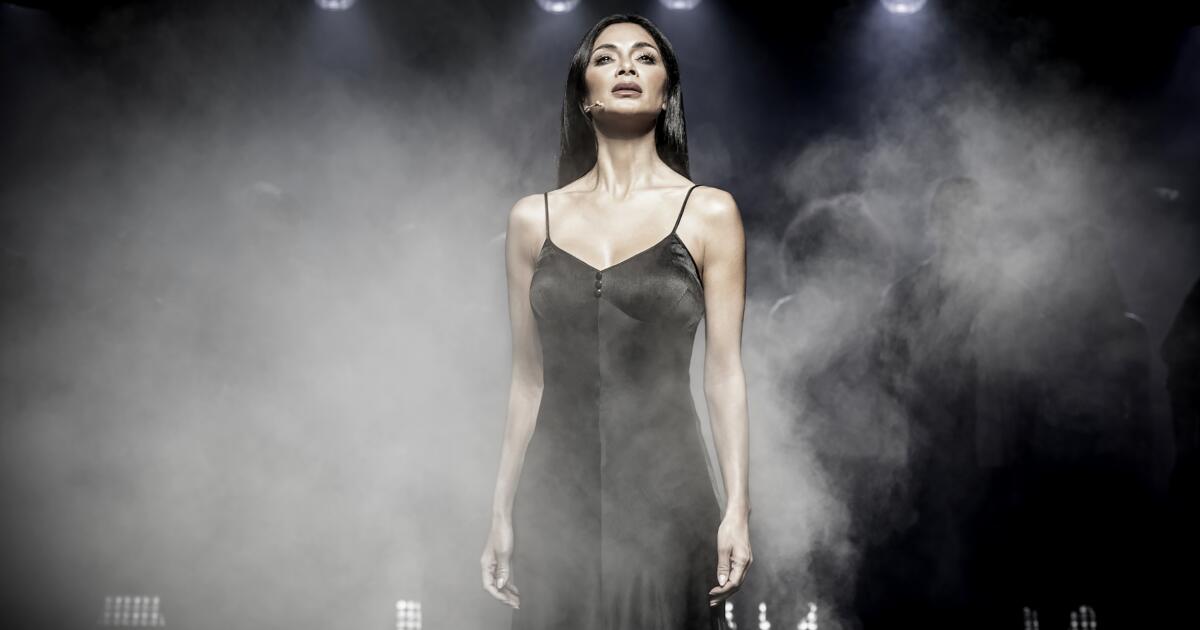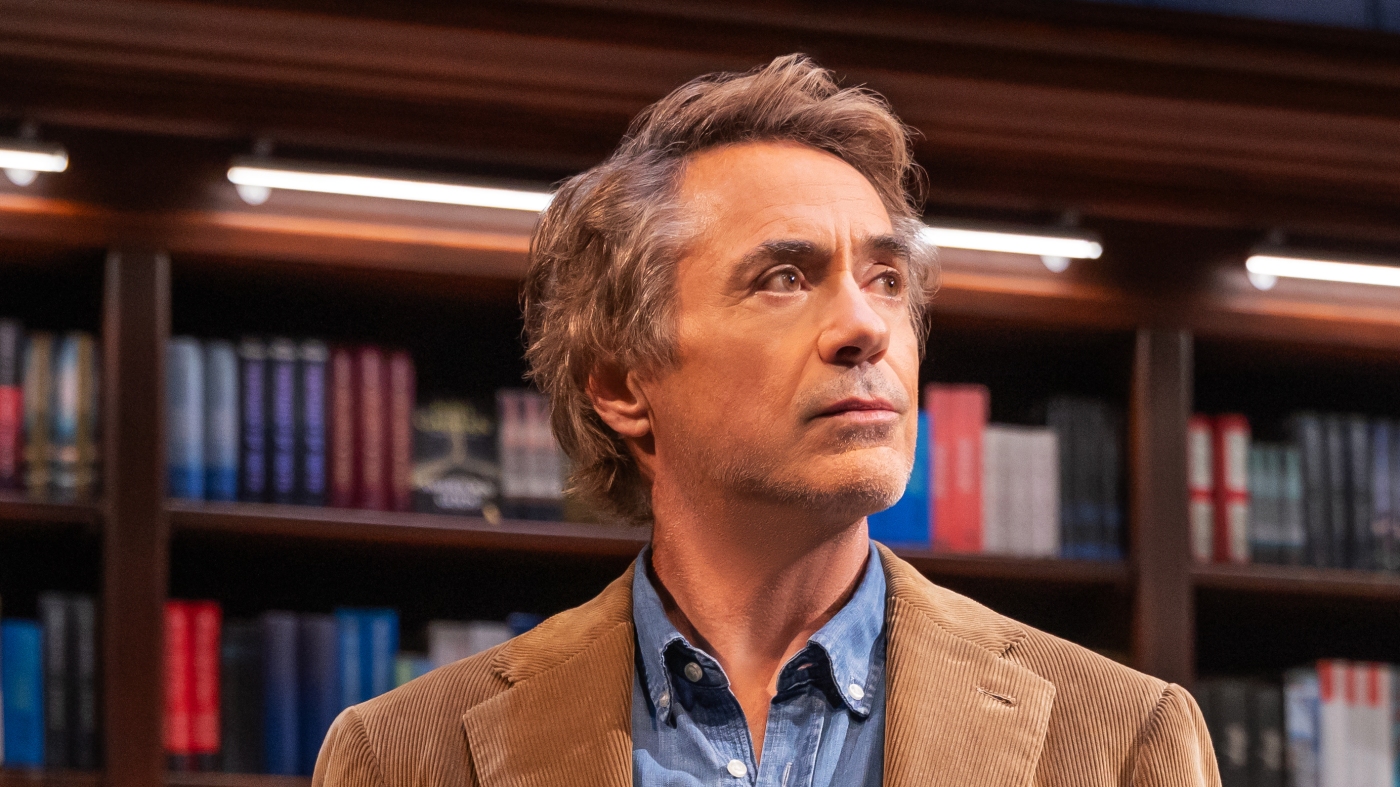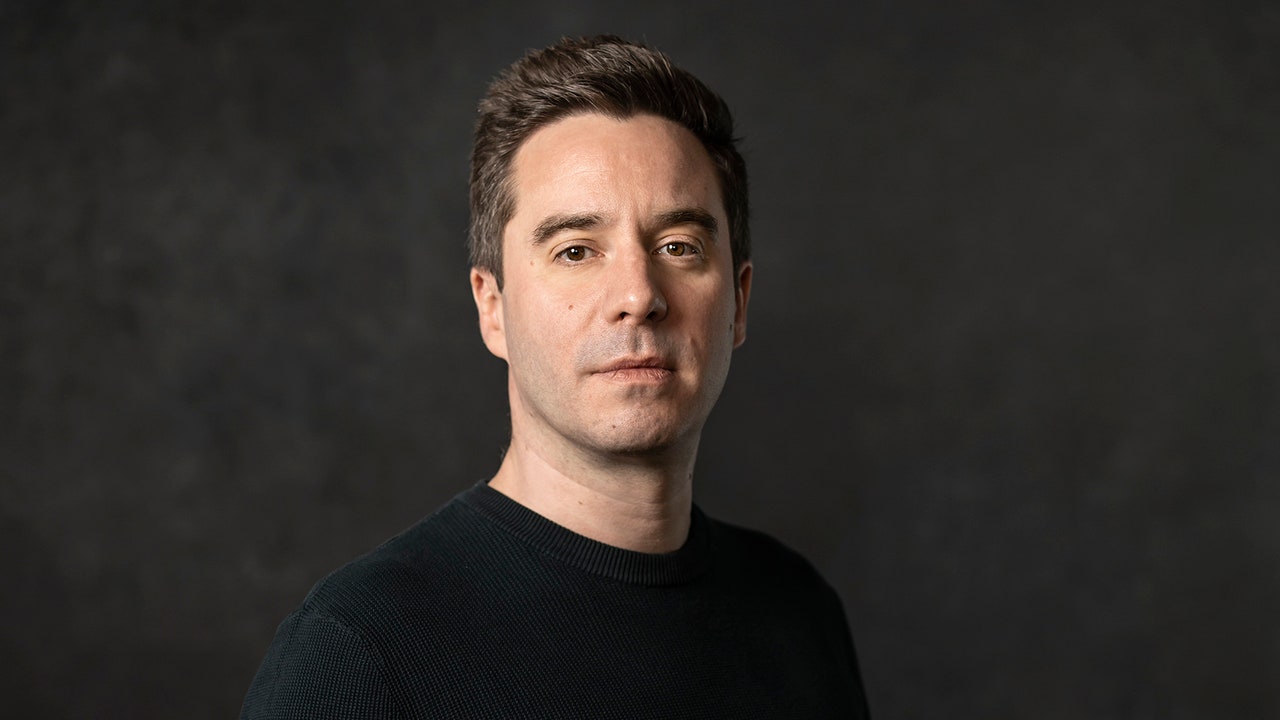
Charlottesville's Violet Crown theater denies it is closing – The Daily Progress
Charlottesville’s Violet Crown theater denies it is closing The Daily Progress
Source link

Even Northern California Has Issues With Censoring High School Plays
School district officials cancelled Santa Rosa High School’s production of Dog Sees God, which depicts the characters of the comic strip Peanuts in high school and deals with themes of bullying, gun violence, and homophobia. A privately-owned theater nearby hosted the production instead. – San Francisco Chronicle (MSN)

It's beginning to look a lot like Christmas in Greater Akron with lots of holiday shows – Massillon Independent
It’s beginning to look a lot like Christmas in Greater Akron with lots of holiday shows Massillon Independent
Source link

‘Sunset Blvd.,’ ‘Romeo + Juliet’ and ‘Our Town’ for a new Broadway era
Three shows well known to theater audiences have undergone radical Broadway makeovers this fall at the hands of directors who recognize that plays and musicals must be in dialogue with their times.
Not everyone is on board with this premise. There are theater lovers, purists you might call them, who would prefer to see a work as its author intended it to be seen. The job of the director, in this view, is to fulfill the playwright’s vision. But an artist’s vision is subject to interpretation, which is to say reinterpretation. Art leaves gaps that invite collaborative dreaming. That is one way Shakespeare manages to keep holding the mirror up to nature.
There are limits, some would argue, to how far a work can be remade in the image of its interpreter. But as director Peter Brook reminds us in “The Empty Space,” “If you just let a play speak, it may not make a sound. If what you want is for the play to be heard, then you must conjure the sound from it.”
Jamie Lloyd, Sam Gold and Kenny Leon, three directors who don’t have all that much in common, conjure unexpected sounds from revivals that upend audience expectations. Newness is found in some very familiar places.
Lloyd has brought his sensational (and sensationalizing) production of “Sunset Blvd.,” starring a nuclear Nicole Scherzinger, to Broadway after its triumph in London’s West End. Gold, who has been deconstructing his way through the Shakespeare canon, has delivered a “Romeo + Juliet” in the form of a rave. And Leon has recast Thornton Wilder’s “Our Town” and made it a reflection of today’s multicultural America.
For all its demographic changes, Leon’s “Our Town,” which is infused with spirituals from wide-ranging religious traditions, completely accepting of an interracial relationship and welcoming of other forms of diversity that likely would have been pushed to the outer margins in the Grover’s Corners that Wilder imagined, feels utterly in sync with the play’s prevailing spirit. Lloyd’s “Sunset Blvd.,” by contrast, blasts away with impunity to create a vastly different experience — a kinetic multimedia concert, in which Andrew Lloyd Webber’s music and Don Black and Christopher Hampton’s lyrics are freed from the procedural nature of Black and Hampton’s book.
In yet another directorial gambit, Gold’s “Romeo + Juliet” looks, sounds and no doubt smells like teen spirit in a production determined to ignite a new generation’s love affair with the play. Kit Connor (from “Heartstopper”) and Rachel Zegler (María in Steven Spielberg’s “West Side Story”) make a magnetic (if imperfectly matched) Gen Z Romeo and Juliet in a frenzied party version of Shakespeare’s tragedy that has the welcoming raucousness of an epic bash thrown by the LGBTQ+ characters from “Heartstopper.”
Tom Francis as Joe Gillis and Nicole Scherzinger as Norma Desmond in “Sunset Blvd.” on Broadway at the St. James Theatre.
(Marc Brenner)
Lloyd, a British theater director with continental European ways, receives prominent billing onstage as the production’s credits roll as they would for a movie. Webber has given his blessing to the director, who imposes many of his signature ploys familiar to those who have seen his 2023 Broadway remodeling of “A Doll’s House” (starring Jessica Chastain) or his inventive (and highly caffeinated) “Cyrano de Bergerac” that justly won acclaim at the Brooklyn Academy of Music in 2022.
Illustration is not Lloyd’s method. He abstracts the written text, creating space between the characters and their lines. Microphones scramble dialogue so that voices become disembodied. In “Sunset Blvd.,” based on Billy Wilder’s 1950 film, the camera is undeniably king. The darkened stage, swathed in movie projector fog, seems like a studio set in which dreams are manufactured through live projections along with more traditional Hollywood means.
Scherzinger’s reincarnated Norma Desmond, strutting around the stage with the swagger of an Instagram influencer, must be ready at a moment’s notice for her selfie. What’s striking about the casting is that Scherzinger hardly resembles the image of a washed-up movie queen. Exquisite to look at, she seems ageless on stage — until, that is, Young Norma (Hannah Yun Chamberlain) comes out of the shadows and the lines on older Norma’s face are projected in high definition for all to see.
Lloyd’s idea of celebrity is of a very recent vintage. In this reimagining of “Sunset,” you don’t need to depend on Cecil B. DeMille for your big closeup. Cameras, like guns, are ubiquitous — and just as impossible to control.
Tom Francis plays Joe Gillis, the down-on-his-luck screenwriter, who gets caught in the web of Norma Desmond’s spider lair on Sunset Boulevard. He’s not only the show’s tragically doomed protagonist but also its storyteller, and he anchors the production with a handsome ordinariness. With the notable exception of David Thaxton’s Max, Norma’s watchdog servant and curator of her glory days, the ensemble that populates this Hollywood world is young, diverse and costumed to reflect today’s incoming generation of entertainment industry dreamers.

Grace Hodgett Young as Betty Schaefer in “Sunset Blvd.” on Broadway at the St. James Theatre.
(Marc Brenner)
Grace Hodgett Young, wearing sneakers and long sweat socks, plays Betty Schaefer, the bright studio script reader who tries to revive Joe’s passion, first as a writer and then as a man. Her lack of glamour is in sharp contrast to Scherzinger’s Norma, who flits about like a vampire in a black slip dress. Betty represents tangible reality while Norma embodies seductive illusion in a musical that dramatizes the unfair fight between them for Joe’s jaded soul.
A former member of the Pussycat Dolls, Scherzinger has a pop voice that can soar to operatic heights. Her big numbers — “With One Look,” “As If We Never Said Goodbye” — have an otherworldly quality. Her voice reverberates throughout the St. James Theatre with seismic force. Her image is projected like that of a deity’s. Scherzinger’s singing is not only athletically thrilling but also breathtakingly beautiful. There’s a reason “Sunset Blvd.” has become the most coveted Broadway ticket since Lea Michele triumphed in “Funny Girl.”
Lloyd’s expressionistic production doesn’t demand that Scherzinger act so much as strike poses. She is worshiped like a superstar. There’s even a winking reference to her Pussycat Dolls fame in the backstage bit that opens the second act. (A live-cam follows Francis as he wanders in and out of dressing rooms, out the stage door and around the busy Broadway neighborhood before returning to resume the show.)
The production is built around Scherzinger’s icon status and staggering musical gifts. When a little more traditional acting is required of her, there are signs of strain. But these fleeting moments of weakness underscore the character’s fragility, just as Glenn Close’s modest singing ability served her devastating portrayal of Norma Desmond in the 1994 Broadway premiere. (Someone should make a musical about the casting machinations that led to Close’s New York conquest after Patti LuPone originated the role in London and Faye Dunaway was dismissed before stepping foot on stage in Los Angeles.)

Stage and screen imagery collide in Jamie Lloyd’s Broadway revival of “Sunset Blvd.”
(Marc Brenner)
I was dazzled by Lloyd’s “Sunset Blvd.,” though never deeply moved by it. The horror film imagery at the end is held by Lloyd for an ungodly long time. Scherzinger’s Norma, doused in blood and adrift in madness, is treated as though she were a composite of Blanche DuBois, Medea and Sissy Spacek’s Carrie. This effect is numbing.
Close, who reprised her Tony-winning performance as Norma in the 2017 Broadway revival and added layers of authenticity burnished by time, made the musical seem weightier than it is. Lloyd modernizes the stagecraft, injecting avant-garde intrigue into what is ultimately a commercial enterprise. The production can’t hide the show’s meretricious heart, but like the song that Scherzinger endows with Puccini-esque splendor, Lloyd has discovered “new ways to dream” Webber’s musical.

Kit Connor as Romeo and Rachel Zegler as Juliet in “Romeo + Juliet” at Circle in the Square Theatre.
(Matthew Murphy and Evan Zimmerma)
Gold’s “Romeo + Juliet” similarly succeeds more theatrically than dramatically. His in-the-round staging at Circle in the Square Theatre is always in leaping motion. Each actor in the 10-person cast, with the exception of Connor and Zegler, plays at least two roles. The horseplay this entails, though gamely performed, grows dizzying.
It’s easy to accept Sola Fadiran as both Capulet and Lady Capulet, as the two figures blend into Juliet’s composite parent. Tommy Dorfman manages the strange pairing of Tybalt and the Nurse. But good luck keeping straight the roles assigned to Gabby Beans, who’s called upon to play Mercutio, the Friar and the Prince. Beans is never fazed by the challenge, but the characters can’t help but come across as flimsy masks.
This giddy revival has no interest in playing by the normal Shakespearean rules. The production features a score by Jack Antonoff, the Grammy-winning music artist and producer who has worked with some of the biggest names in the business (Taylor Swift, Lana Del Rey and Kendrick Lamar, among them). Gold’s “Romeo + Juliet” seems to be taking its cues from “& Juliet,” the hit Broadway jukebox musical that features songs by Max Martin and other artists in a “Romeo and Juliet” sequel that imagines what might have happened had Juliet lived.

Rachel Zegler as Juliet and Kit Connor as Romeo in “Romeo + Juliet” on Broadway.
(Matthew Murphy and Evan Zimmerma)
The audience at the Saturday matinee audience I attended was filled with young people who seemed delighted by the rambunctious high jinks. Connor and Zegler are radiant as the young lovers, though the chemistry between them is more of an idea than a palpable reality. Connor has more facility with the poetry; Zegler is in her element when expressing her character in song. Pity and fear get lost in the shuffle of Gold’s hyperactive staging, which rouses more emotion in the rom-com moments (the sexy acrobatics of the balcony scene elicits a chorus of squeals) than in the sepulcher climax.
Sniffy Shakespeare scholars and demanding drama critics clearly aren’t the target audience. But I can’t help remembering the National Theatre film of “Romeo and Juliet” starring Josh O’Connor and Jessie Buckley that came out during the pandemic. Simon Godwin’s production, which aired on PBS, proved it was possible to be dynamically contemporary while still faithful to the tragedy’s true source of timelessness, its dramatic poetry.

Jim Parsons and the cast of “Our Town” in 2024 Broadway revival directed by Kenny Leon.
(Daniel Rader)
“Our Town,” unfolding at the Ethel Barrymore Theatre like a glorious hymn, was the play I didn’t realize just how badly our country needed right now. I saw Leon’s production before the election and found it balm for the soul of a divided nation. Now, after the election, I think the National Institutes of Health should purchase tickets for every American who would like to go. Wilder’s drama, offering a guided tour of an ordinary town going about its diurnal business, reminds us, through the inescapable shadow of mortality, of what we have in common.
The play’s spry theatricality has no trouble accommodating Leon’s 21st century vision of Grover’s Corners. The character of the Stage Manager (played by Jim Parsons with a take-me-as-I-am dignity) sets the stage for a drama that relies on the imaginative participation of the audience to see props that aren’t there and accept the passage of years on the Stage Manager’s say-so.

Ephraim Sykes, left, Richard Thomas and Zoey Deutch in “Our Town” at the Ethel Barrymore Theatre.
(Daniel Rader)
Making the role his own with his distinctive blend of solemn gravity and ironic urbanity, Parsons is the standout in the cast. I also appreciated Katie Holmes’ no-nonsense Mrs. Webb. But this is a production in which the whole is greater than the sum of its individual parts.
Zoey Deutch’s Emily Webb and Ephraim Sykes’ George Gibbs, the young couple who discover love and are taught the hard lesson of loss, don’t on their own drive home the pathos, but they are in perfect tune with Leon’s inclusive vision.
Unfolding on a set of distressed wooden planks and hanging lanterns, “Our Town” gleams like a restored antique in this Broadway revival. Leon has been one of the most in-demand Broadway directors in recent years. He has a gift for making older works, such as “Purlie Victorious: A Non-Confederate Romp Through the Cotton Patch” “and “A Soldier’s Play,” seem newly minted. But perhaps that’s because his ultimate aim is to serve the author. He updates the story only to make it live again in our time.

Theater festival offers solace in Burkina Faso, a nation torn by violence – VOA Asia
Theater festival offers solace in Burkina Faso, a nation torn by violence VOA Asia
Source link

How This Michigan Theatre Performed Godspell in a Pool on a Stage
When you think of Flint, Michigan, the first thing you think of is water. Or rather, the 2014 water crisis which made the water in the city undrinkable for many residents, until 2020. But for director Michael Lluberes, who has lived in Flint for six years and runs the Flint Repertory Theatre, the city is more than that catastrophe. So, when he came up with the idea to do Stephen Schwartz’s musical Godspell and set it in a working swimming pool, with actors splashing around—it felt like a natural fit for Flint.
“Flint has this really complicated history and relationship with water. So I thought it could potentially be really beautiful and healing and magical to do something joyful in water,” he explains. “That’s part of what led me to do it—to show the world, to show the country that Flint is actually a beautiful place, and that the water is just fine. Dive in.”
And audiences are. Flint Rep is a young theatre, just six years old, with a modest $1.2 million operating budget. But Godspell has been its most successful production so far—its initial six-week run sold out and the show extended by two weeks to November 3. And it has attracted theatre lovers far and wide. “People are coming from all over to see it, which is crazy,” marvels Lluberes. “They’re driving, like, 10 hours. I mean, it’s been overwhelming, the response.” Flint Rep is even in talks with bigger theatres for an encore engagement.
To clarify: No, this production of Schwartz’s musical, based on the Gospel of Matthew, is not site-specific. Flint Rep is not doing it at a local pool. They’re doing it on a stage, in a real-working pool. The audiences sing, dance, and exalt about Jesus Christ while in water. The front row is the splash zone, or as Lluberes jovially puts it, it’s a baptism zone.
“The show starts with this baptism—John baptizes Jesus,” he explains. “So my thought was, what if the whole thing were a baptism? What if the whole thing were in water? And it became this theatrical baptism for the audience?”
And for the actors as well. When Lluberes was casting for the show, he asked the actors if they were comfortable performing for two hours in water. One of the actors, Gia Mae Chessa (who sings the rollicking solo “Bless the Lord”) is a former lifeguard. Talk about transferable skills.
“They have to be these quadruple threats: Singers, yeah, actors, dancers, and swimmers,” he says. Granted, there’s not much swimming in the show since the pool is four feet deep. But the cast rehearsed in a public pool at the YMCA of Greater Flint, so they could strengthen their limbs so they can dance underwater, and train their lungs so they can dive underwater and then sing when they come up. They also learned to work with the props—which are all pool themed: Pool noodles act as canes, colorful diving rings become money, and there’s numbers that use buckets, squirt guns, floaties, and rubber duckies.
As Lluberes describes it, “We do the Good Samaritan story using the rubber ducky as a little puppet show. The duckies light up. I just really wanted it to be fun and to be silly, and the audience to have a belly laugh. And then hopefully, it goes somewhere transformational and special and beautiful.”
Michael Lluberes
Dan White
As for the pool itself, Flint Rep actually purchased a working above ground swimming pool that’s 16 feet in diameter. The pool also heats so the actors can stay comfortable. “It’s a self-cleaning pool,” says Lluberes. “We’re constantly cleaning it and skimming it, and it’s constantly monitored for the temperature.” Lluberes credits the four-person stage management team who are in charge of pool upkeep: “They make it safe, they clean it, they dry it off at intermission. They put a cover on it. We’ve invested in industrial dehumidifiers rather. It’s been crazy!” He then laughs, “We’re doing the show, but we’re also running a pool.”
On the stage, the platform the pool is placed on looks like tile but it’s actually treated wood so the actors don’t slip when they have to get out. To keep the cast comfortable, the temperature at the theatre is slightly warmer than it would normally be. On the tech side, the actors are not mic-ed—instead the sound is captured through hanging choir mics.
Though while the cast practiced hard at performing in the water, how do they stay healthy with all that moisture, not to mention the chlorine? “Lots of moisturizer,” answers Lluberes. “And ear plugs, and they drink electrolytes.”
Aside from potential encore engagements, Lluberes isn’t sure what Flint Rep will do with the pool after they close the show (joking “We’ll have staff meetings in the pool”). But for him, this six-week run has exceeded his expectations—both for showcasing how Flint has persevered and grown after the water crisis, and for bringing joy to audiences.
The musical may be called Godspell,but to Lluberes, the real church is theatre. “The show was never a show about religion,” he says. “I’m culturally Jewish, I’m not religious at all. It’s not a show about religion. It really isn’t. It’s about community. It’s about a group of disparate people who come together and through telling stories, they form this community. And that’s what the theatre is.” He then adds, “It’s just fun, too. What could be more fun than the actors splashing and singing and dancing this amazing score in water?”

Dare Arts, The Pioneer Theater partner to host Outer Banks Veterans Concert – The Coastland Times
Dare Arts, The Pioneer Theater partner to host Outer Banks Veterans Concert The Coastland Times
Source link

A guide to finding cheap(er) Broadway tickets : NPR
Robert Downey Jr. is on Broadway this fall.
Matthew Murphy and Evan Zimmerman/Lincoln Center Theater
hide caption
toggle caption
Matthew Murphy and Evan Zimmerman/Lincoln Center Theater
It’s the time of year when people think about visiting New York City for the holidays — and maybe seeing a Broadway show. It’s an exciting season to do that, since celebrities are all over Broadway this year (Robert Downey Jr. is on stage until after Thanksgiving; George Clooney’s coming this spring. But there’s also Jim Parsons, Mia Farrow, Daniel Dae Kim, Kit Connor…).
Then again — you may be scared away by stories about $800 tickets.
As a former theater critic and a long-time arts reporter, the question I’m asked most often is: How can I get affordable tickets? I’ve steered friends, relatives and colleagues toward cheaper (if never cheap) seats. Here’s my best advice:
Be flexible, if you can.
Do you want to see a particular show (you’re a Sondheim fanatic, there’s a celebrity you love) or is it just that a Broadway show is on your bucket list? Are you flexible on dates and times? Do you care where you sit? If you can be flexible, you’ll have a better chance at finding less expensive tickets. Not every ticket costs hundreds of dollars. There are plenty of options below $100 each, especially if you’re open to seeing almost anything, or at least a wide variety of shows.
Ticket prices change depending on the day, the capacity of the theater and the seat — pricing can be fluid and depend on weekly popularity of a show. If you can, check prices for a few days and compare. The difference could be significant.
And then there are the dead times of year: January, February and September. Those are great times to buy a Broadway ticket. During these months, you can look out for Broadway Week, which offers 2-for-1 tickets, and Kids’ Night on Broadway, when a child is free with an adult, usually in February.
And then there’s seat location. Seats with an obstructed view or partial view (you may not be able to see the whole stage) and seats that are in back of the highest balcony will cost you less.
Where to look
Shows that are in previews — that is, before their opening date, when they’re still working out kinks and haven’t been reviewed by the mainstream media — are often less expensive. Shows that are struggling are often sold for less. Long-running shows (Chicago), may be priced much lower than a show that just won Best Musical at the Tony Awards (The Outsiders). Plays often cost less than musicals (though not when there are super-famous people in them).
If you want to see how ticket prices are trending, you can check out the weekly Broadway grosses, put out by the Broadway League, which details how full a theater was the previous week. A show that’s at 70% capacity is going to have lower-priced tickets than a show that’s regularly at 100% capacity. And yes, that means it’s not as popular at the moment — but it doesn’t mean you’ll like it less!

Kit Connor and Rachel Zegler in Romeo + Juliet
Sam Levy/Romeo + Juliet
hide caption
toggle caption
Sam Levy/Romeo + Juliet
But what if your daughter really wants to see Kit Connor?
Are Broadway tickets ever sold at a discount? Yes. (Might not happen for this show, though!)
Discount codes: Discount codes are often available from New York Show Tickets, TheaterMania, BroadwayBox and Playbill. Some employers offer benefits like Working Advantage, which also has discounts. Some credit cards have special orchestra pricing. If you have a large family of 15 or more who are visiting and can book well in advance, you may be able to take advantage of group ticket pricing.
The lotteries: You can put your name in for tickets in advance and hope you’re the lucky winner – they usually run for one to four tickets and cost $30-40 per ticket. Bad news: you won’t be able to choose your tickets. Good news: most lotteries are now done online instead of waiting in line. Different productions use different lotteries, which may include TodayTix or Lucky Seat. Some lotteries are for the next day — others are for the next week — so you’ll need to visit the show website for details. You’ll have a very limited amount of time to respond if you’ve won, often about an hour, so be sure to check your email/texts regularly.
Rush tickets: Rush tickets are significantly discounted, day-of tickets. To buy them, go to the box office as soon as it opens on the day of the show (you may be able to get standing room tickets then, too.) These tickets are often taken from the remaining seats available, which means that you may not be able to sit with other members of your party. Pro tip: Buying tickets at the box office saves you ticketing fees, even if you are buying full-price tickets.
You can also buy discounted, same-day tickets through TodayTix or by going in person to one of TDF’s two locations: Duffy Square on Broadway at 47th St. in Times Square (look for the large red steps) or Lincoln Center (this one is inside the David Rubenstein Atrium, which makes it better for rainy days). Get there early, be prepared to wait in a long line, and (again!) be flexible.
Resale apps: Many resell sites hike up prices of tickets — though sometimes you can find cheap seats at the very last minute — if you are willing to wait it out. My colleague (and frequent theater-goer) Janet W. Lee recommends the ticket resell app Theatr, which sells for face value or less and often has last-minute deals.
See something Off Broadway — or wait for the road show
Many Broadway shows tour, probably to a place not far from your hometown. The sets may be scaled down, depending on the production, but the casts are terrific and the tickets cost considerably less. Or visit London! Though ticket prices even there have gone up, excellent seats for the most popular West End shows are around $150.
But also, consider Off Broadway! And Off Off Broadway! Some of the best theater in New York is not actually on Broadway, and the further you get from the Main Stem, the smaller and more intimate the experience and the less expensive the ticket. Productions that debut at the non-profit Off Broadway houses like the Public Theater and Second Stage often transfer to Broadway later, so you can tell all your friends, you “saw it when.” And commercial Off Broadway houses often have very popular, long-running shows that are worth seeing, like the current production of Little Shop of Horrors.
If you’re up for seeing Off Off Broadway shows, tickets can be as little as $11 with TDF’s “Go Off-Off and Beyond” membership, which has a one-time $5 fee.

Jim Parsons — and Katie Holmes and Zoey Deutch — are in Our Town on Broadway.
Daniel Rader/ Our Town
hide caption
toggle caption
Daniel Rader/ Our Town
For young theater-goers
There are many, many programs offering less expensive tickets for students or theatergoers under 35 or 40, including tickets in the $30-35 range at Roundabout, 2nd Stage, Lincoln Center, Manhattan Theatre Club, and Playwrights Horizons. Some shows, like The Outsiders, have special rush ticket rates for people under a certain age.
Tips for locals
If you live in the area, you have many more options. You can put your name in for several lotteries weekly and look out for Broadway Week and Kids’ Night on Broadway. If you work for a non-profit, are a student, union member, retiree, veteran, government worker or fall into many other categories, you can sign up for the excellent TDF membership program for $35 a year. Membership gives you the option of buying steeply discounted tickets for Broadway, Off Broadway and Off Off Broadway, with prices ranging from $11 to $60 each. Productions that are sold out will not show up on TDF, but it’s a great way to see shows in previews, shows drawing less of a crowd, or smaller (but often wonderful) productions.
If you don’t qualify for TDF, a good option is a “ticket papering service,” which discreetly fills seats for theaters (and often classical music or jazz concerts as well) to make them appear more popular. It’s simple — you sign up with a membership fee (usually around $100), pay a small fee (about $5 or so) per ticket, and go to the show on your best behavior. To find them, Google “ticket papering services” because they can come and go, but they include services like Play By Play, Theater Extras, Stagelight and Will Call Club. Ask around on social media sites like Reddit to see if a particular service generally has the kind of tickets that interest you.
And if you just want to see great theater and don’t care if it’s on Broadway? Consider a membership to one of the city’s excellent non-profit theaters, like the Public Theater, New York Theatre Workshop, Ars Nova or Atlantic Theater Company.
Story edited by Meghan Sullivan.

“New Open Movie Captioning Requirement for DC Movie Theaters Begins” – PoPville
“New Open Movie Captioning Requirement for DC Movie Theaters Begins” PoPville
Source link

James Graham Thinks We’re in a Crisis of Storytelling
The brutalist Royal National Theatre building, which sits aggressively on the south side of the River Thames, in London, is a “love it or loudly despise it” kind of place—all concrete edges and unwelcoming angles. King Charles III once morosely described it as “a clever way of building a nuclear power station in the middle of London.” For the playwright and screenwriter James Graham, however, it holds a certain appeal. “I think the geometry of it is fucking sexy,” he told me recently.
We were seated on a mezzanine floor in the dining room of the theatre’s upscale restaurant, Lasdun, named for the building’s architect, Denys Lasdun. Looking down through a large window, we could take in the buzzing lobby and the pre-theatre-drinks crowd. The vibe surrounding us was moody-industrial: white tablecloths and black leather seats, with spotlit concrete walls and dark flooring. The ceiling, also concrete, was coffered, like a particularly sturdy beehive.
Graham likes an Old-Fashioned at Lasdun’s bar when his plays are in tech in the theatres below, and they often are. (Once you know his name, it’s seemingly everywhere.) The restaurant was a fitting location for a playwright known for history plays that interrogate, in unsparing detail, the U.K.’s most treasured national institutions. In “This House,” his breakout work, from 2012, he explored the inner workings of Parliament and the ascent of Margaret Thatcher. “Ink,” which transferred from the West End to Broadway in 2019, followed Rupert Murdoch and the rise of tabloid journalism. Earlier this year, Graham won an Olivier Award for “Dear England,” his play about the former English soccer manager Gareth Southgate and the pressures of the game.
On the day we met, he bustled in with a backpack, apologizing profusely for being late. At forty-two, he has the bright, slightly harried air of someone who enjoys being exceptionally busy. This year, he has opened two plays in the U.K., and two more are scheduled for the spring. The second season of his BBC show, “Sherwood,” about a real-life murder in Nottinghamshire, the mining county where he grew up, premières next month. At the restaurant, Graham said he had taken the train from Liverpool, where he was speaking at the Labour Party conference. The next day, he would fly to New York, to prepare for the opening of Elton John’s splashy new Broadway musical, “Tammy Faye,” for which Graham wrote the book. (Jake Shears wrote the lyrics; previews started at the Palace Theatre on October 19th.) The show began its life at the Almeida Theatre, in London, in 2022, and has been significantly reworked. “Oh, God, it feels like a big thing,” he said, nervously. What could go wrong with a Broadway show? “They’re so cheap, and they always run for years,” he joked. He ordered a glass of Italian red.
“Tammy Faye” follows the true story of Tammy Faye Messner (formerly Bakker), the American televangelist who, in the nineteen-seventies and eighties, with her pastor husband, Jim Bakker, was adored by millions. Together, they ran a popular television show, “The PTL Club,” and a successful Christian theme park called Heritage U.S.A. That was before it emerged that Jim had been swindling money from their followers, and had covered up a sexual encounter; he was convicted of fraud and sentenced to prison. But Tammy Faye, with her big hair, outlandish makeup, and tendency toward bigheartedness, remained a beloved figure, embracing those whom mainstream evangelicalism shunned. Before the scandal broke, she invited a gay Christian minister with AIDS onto her show. “How sad that we as Christians—who are to be the salt of the earth, we who are supposed to be able to love everyone—are afraid so badly of an AIDS patient that we will not go up and put our arm around them and tell them that we care,” she said.
An unusually eloquent waiter—an aspiring actor—took our order and returned with the plates: pork shoulder for Graham, a hockey-puck-size fish cake with anchovy sauce for me. “I mean, their story—Jim and Tammy’s—is obviously Shakespearean,” Graham said, cutting into his food. “It’s a rise and fall from poverty, through love, success, chaos, destruction of empire, shaming, and then coming out the other side having learned a valuable lesson. Like, it’s all there.” When Graham joined the project, however, he had never heard of the Bakkers. John and Shears were both longtime Tammy fans, and had been toying with the idea of a musical for years. They had watched clip after clip of “PTL” and written a few songs, but didn’t yet have a story. “Elton really knew her to his bones, and comes from that musical tradition. The gospel South, that’s his music,” he said. And, he went on, “Jake has been obsessed with Tammy Faye since a young boy, like, seeing her as this gay icon that he knew before he knew he was gay.”
John sent a car to pick Graham up from a flat he shared with a few others. (“I was, like, Please don’t send a car! I can just take the Tube.”) They had dinner in the pop star’s house in Windsor. Once he got the job, he immersed himself in Tammy’s world, reading histories of the evangelical movement and the memoirs of the pastor Jerry Falwell, who becomes a villain-like figure in the show. Eventually, Graham told John and Shears that he wanted the musical to go beyond Tammy. (Graham told me that they said, “Make sure you keep the heart. Don’t go all cerebral.”) “I thought her story would be infinitely more powerful if it was against the backdrop of a wider exploration of that system. What is televangelism? Why did it emerge? What need did it fill?” he said. “You do say the words, quite early on, ‘I think I want to put Ronald Reagan in it.’ ”
The restaurant had filled up and grown noisier as we approached showtime. No one seemed daunted by the prospect of a nearly three-hour production of “Coriolanus” downstairs. Growing up, Graham had never heard of the National Theatre. He was a shy kid who would spend hours alone in his room making up stories, unless he was performing. He loved ice skating—not a traditional choice in his tough, post-industrial town—and appearing in school plays. (“A massive Billy Elliot cliché, I know,” he said.) He studied drama at the University of Hull, and didn’t set foot inside Lasdun’s building until he came to London, in his early twenties. The first play he saw there was David Hare’s “The Permanent Way,” a sweeping epic about the U.K.’s railway system. Sexy. “Why I love that as my first play is because it was a really big commercial, popular hit about the privatization of the railways, which has given me confidence to do, on paper, really nerdy, political plays about things that should sound unappealing.”

Review: BEDROOM FARCE at Players Circle Theater – BroadwayWorld
Review: BEDROOM FARCE at Players Circle Theater BroadwayWorld
Source link

After UArts collapse, Pig Iron Theatre finds new home at Rowan
From Philly and the Pa. suburbs to South Jersey and Delaware, what would you like WHYY News to cover? Let us know!
The Pig Iron School for Advanced Performance Training will become part of Rowan University in New Jersey, almost four months after it was cast adrift following the sudden closure of the University of the Arts in Philadelphia.
Pig Iron Theatre cofounder Gabriel Quinn Bauriedel said Rowan will be the Pig Iron School’s forever home.
“I believe absolutely that this is phase three of the school,” he said. “Phase one we did it on our own. Phase two we did it with UArts. Phase three, the final phase, is with these gentle, kind, wise folks at Rowan.”
The Pig Iron Theatre Company is widely known for its experimental and devised theater techniques and created a school to train students at the master’s degree level. But the degree program requires an institutional partner, which is now Rowan.
Rowan University has three campuses in South Jersey, with the Department of Theater and Dance based on the main campus in Glassboro, New Jersey. Pig Iron will remain in Philadelphia, with students studying at the school’s studio in Philadelphia’s Kensington neighborhood.
“It’s really a unique opportunity to have this exemplary, unique MFA that’s already in existence,” said Rick Dammers, dean of the College of Performing Arts at Rowan University. “They have their own facilities. They have their own students already. It’s a lot easier to incorporate a pre-existing program than to start one from scratch. And the reputation of the program, too, is exciting.”

Tickets Already Selling Strongly for 13th Annual Robeson County Christmas Show Opens December 6 at Carolina Civic Center Historic Theater – BladenOnline.com
Tickets Already Selling Strongly for 13th Annual Robeson County Christmas Show Opens December 6 at Carolina Civic Center Historic Theater BladenOnline.com
Source link